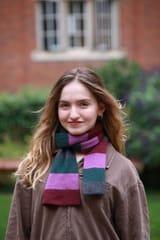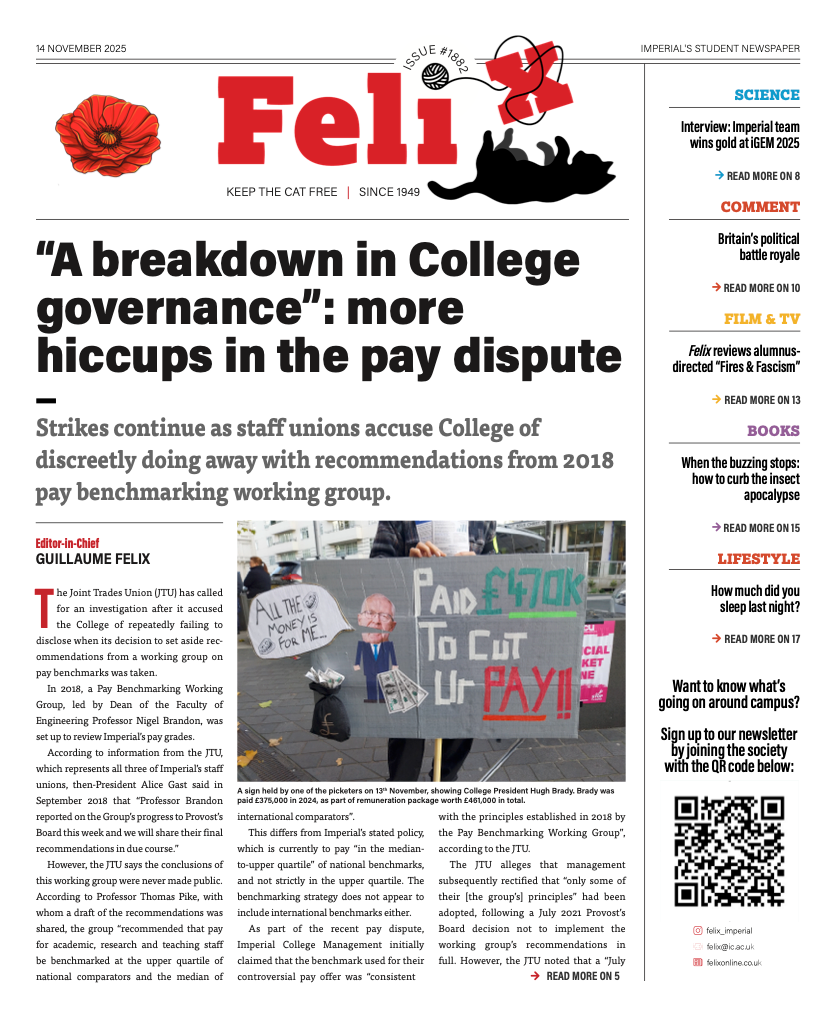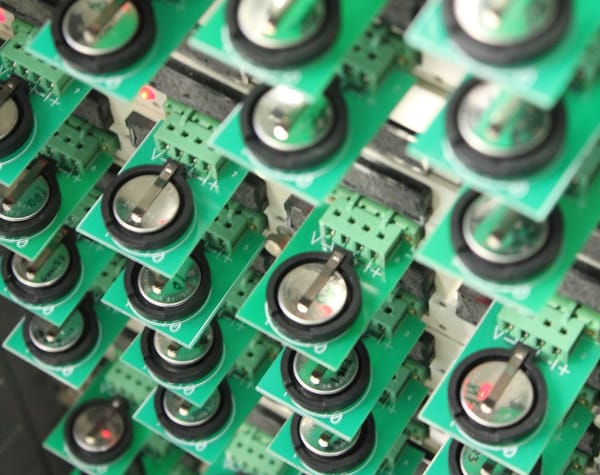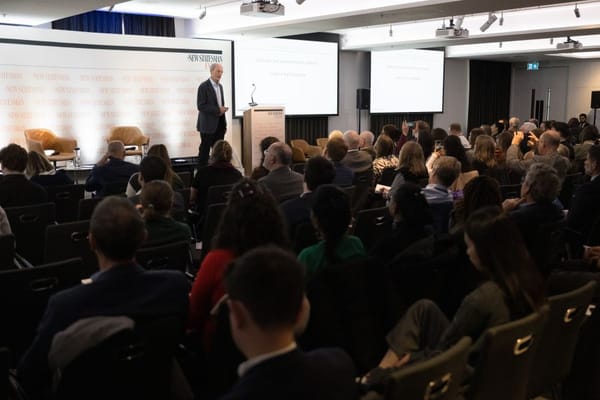Volunteering at iGEM 2025
Felix writer Begüm Yener shares her experiences being a volunteer and interviewing the Imperial team who won the Gold Medal this year.
Imagine using genetic editing to cast problems away, to find our way through societal advancements. Synthetic biology is an avenue of science that offers this exact promise by engineering new biological systems. The term “synthetic biology” was first used in the 1910s by Stéphane Leduc, but the great advancements in biological engineering didn’t blossom until the 1980s. iGEM became the playground for novel ideas in synthetic biology in 2004, and the notion of editing the principles of life itself became more accessible. The competition is attended by undergraduate, postgraduate, and even high school students, and the Jamboree this year took place last week between 28th and 31st October.
The Jamboree started in 2004 in Boston with only 54 participants. This year, there were more than 9,000 participants from over 40 countries, and the Jamboree has been taking place in the Paris Convention Center since 2022. iGEM is not only for students but also for the greater synthetic biology community. That includes industry specialists like representatives from Oxford Nanopore and the journal Frontiers, academics from all over the world such as Professor Chris Voig from MIT and Professor Wataru Aoki from the University of Osaka, and founders of startups that began as iGEM projects. The Jamboree, besides the obvious competition, is an incredibly insightful event full of opportunities to meet like-minded and inspiring people. The event was also enhanced by BioWeek, where tangent events took place in various venues in Paris.
But… how did I get there? I’ve been interested in synthetic biology and have known about iGEM since high school – even had some hopes of starting a team then. To me it seemed like, and still seems like, the coolest application of life sciences and the closest science has come to sorcery. When the opportunity arose to take part in the Jamboree as a volunteer, for free, I applied immediately. Coincidentally, my friend Audrey applied as a volunteer as well, so we had the chance to work together. A volunteer team of approximately 140 people, we oversaw every aspect of the event, from gifting speakers to selling merchandise. As a volunteer, I was fortunate enough to have shifts helping teams give their talks in Plazas which gave me insight on what the teams this year were working on.
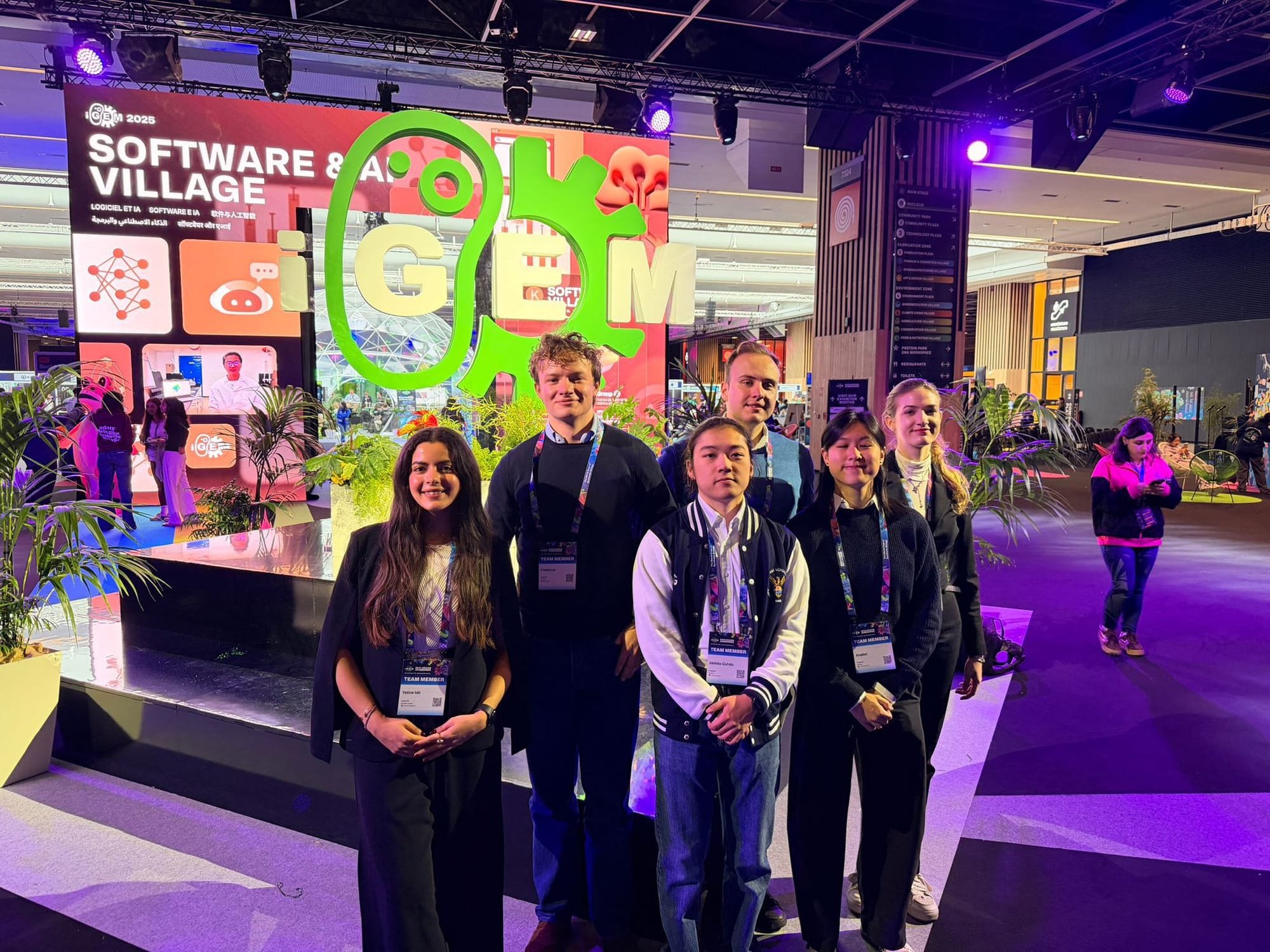
The event was divided into Plazas/Zones and Villages within those Plazas, in order to categorise projects by their aims and target areas. The four main Zones were Environment, Fabrication, Advancement, and Healthcare, which encompassed 15 Villages focused on specified topics within these.
During the Jamboree, I also had a chance to meet Imperial’s iGEM team for this year and ask them some questions about their experiences in iGEM. The team, comprised of students from biochemistry, biomedical engineering, molecular bioengineering, and medical biosciences, has embarked on a project to make cultivated meat more feasible and sustainable, a goal with significant environmental implications. Team leads Szonjaa Skenderovic and Yeline Idir, alongside fellow members Frederick Steinmann and Aki Gohdo, shared how their multidisciplinary approach has shaped every stage of their project. Their efforts began with a broad idea, gradually refined through extensive research and outreach to industry professionals. Early on, the group identified growth factors as the primary bottleneck in the process of cultivated meat production. By investigating more efficient and scalable ways to produce these crucial components, the team aimed to bridge the gap between academic research and industrial application.
One standout aspect of their journey has been the team’s commitment to human practices, a part of each project that iGEM really cares about. Human practices aim to connect academia, business, and industry and reveal the disconnect that often exists between them. Through interviews and collaboration, the team discovered that industry trade secrets can prevent academic researchers from accessing vital knowledge, leading to duplicate efforts and missed opportunities for innovation.
As a result of their efforts, the Imperial team was once again awarded the Gold Medal, showing excellence beyond what is required for general biological engineering and chosen specializations. ‘Getting Gold feels like the right way to end a year that pushed us to our limits and reminded us what belief and persistence can do,’ Skenderovic told Felix.
Their road to success was not without obstacles. The team faced strict university regulations on lab access, requiring supervision that limited their working hours and slowed their experiments. Administrative hurdles and unfamiliarity with novel yeast strains further tested their flexibility and organization. But despite the setbacks, they sparked curiosity for what is ahead for Imperial’s iGEM legacy and advancements in synthetic biology.
‘Growf was never just a university project; it will keep guiding each of our paths of growth through the opportunities it opened,’ Skenderovic said.
Attending this event and being willing to miss lectures at arguably one of the busiest times of the year was a huge leap of faith for me, and I am very glad I took it. To anyone reading this article and considering going for something that feeds their intellectual appetite, I would say go for it, as every missed recording will be worth it after all (and if it is in Paris, that is a huge plus). If you are interested in being a part of the team this year, the applications are closed, but they are managed by the SynBio Society at Imperial. Volunteering opportunities, however, open around August.

